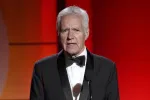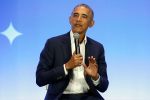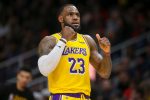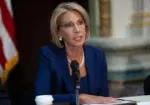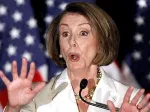I’ve noticed today that the left is in a fury about the Supreme Court’s 5-4 ruling last night striking down New York’s wholly arbitrary restrictions on churches and other places of worship because the Court is “ignoring the advice of the experts.” True indeed.
I could go on at some length about old cases involving the arbitrary (and therefore unconstitutional) use of the government’s police power, but in this case it is worth dwelling for a moment on this rote belief that the Court should defer to the “experts” in the other branches about restricting fundamental constitutional rights, like religious liberty.
Maybe more to the liking of liberals is this language from an old case:
It should be noted, to begin with, that all legal restrictions which curtail the civil rights of a single group are immediately suspect. That is not to say that all such restrictions are unconstitutional. It is to say that courts must subject them to the most rigid scrutiny. Pressing public necessity may sometimes justify the existence of such restrictions. . .
So far so good, but no fair peeking yet! To continue a little further down, though here I am going to omit (with elipses) a few terms so as to highlight the logic of the opinion calling for judicial deference to “experts”:
We cannot reject as unfounded the judgment of . . . authorities and of Congress that there were . . . members of that population, whose number and strength could not be precisely and quickly ascertained. We cannot say that the . . . branches of the Government did not have ground for believing that, in a critical hour, such persons could not readily be isolated and separately dealt with, and constituted a menace to the . . . safety which demanded that prompt and adequate measures be taken to guard against it. . .
It was because we could not reject the finding of . . . authorities that it was impossible to bring about an immediate segregation . . . that we sustained the validity of the curfew order as applying to the whole group. . . In doing so, we are not unmindful of the hardships imposed by it upon a large group of American citizens.
Congress, reposing its confidence in . . . our leaders — as inevitably it must — determined that they should have the power to do just this. There was evidence . . . on the part of some, the . . . authorities considered that the need for action was great, and time was short. We cannot — by availing ourselves of the calm perspective of hindsight — now say that, at that time, these actions were unjustified.
Yes, this is the language from the majority opinion in the Korematsu case in 1944, upholding the internment of ethnic Japanese in World War II, now thought by liberals to be a great disgrace in American history as well as civil rights law. But note a key feature of this case—that the Court should defer to the expertise of the military that thought the internment to be a necessary war measure.
So in arguing that the Supreme Court should defer to “experts” like Governor Cuomo, arbitrarily deciding that liquor stores and acupuncture clinics are “essential” services while churches are not, the left has returned to its logic in Korematsu, because for the left, government power is more important than civil rights. In other words, I could easily re-write the Korematsu opinion almost word-for-word, merely swapping out “health experts” in place of “military command” and “potential COVID spreaders” in place of “Japanese,” and present a ruling that coincides with the left’s view today.
P.S. If I read the opinion correctly, the Court would likely bless a more uniform lockdown that didn’t make these clearly nonsensical and arbitrary distinctions about what can be open and what must be closed. In other words, if New York wants to close down everything, then the closure of churches would likely pass muster with the Court.


